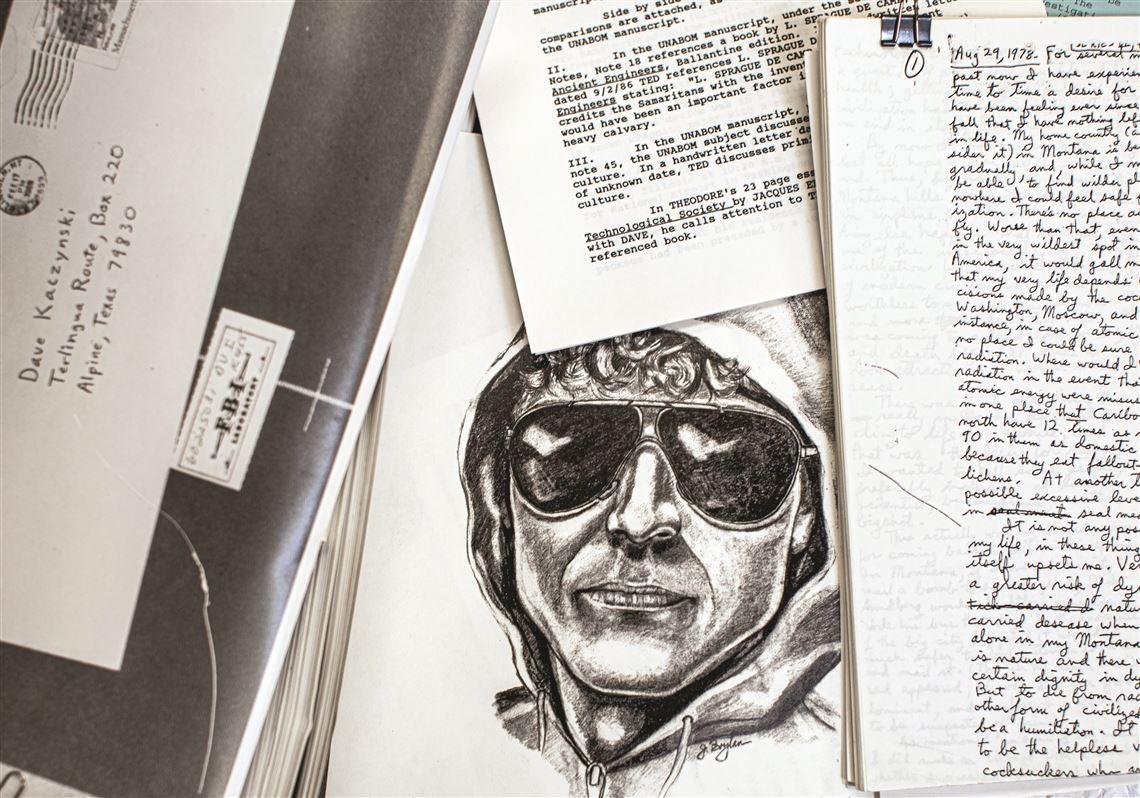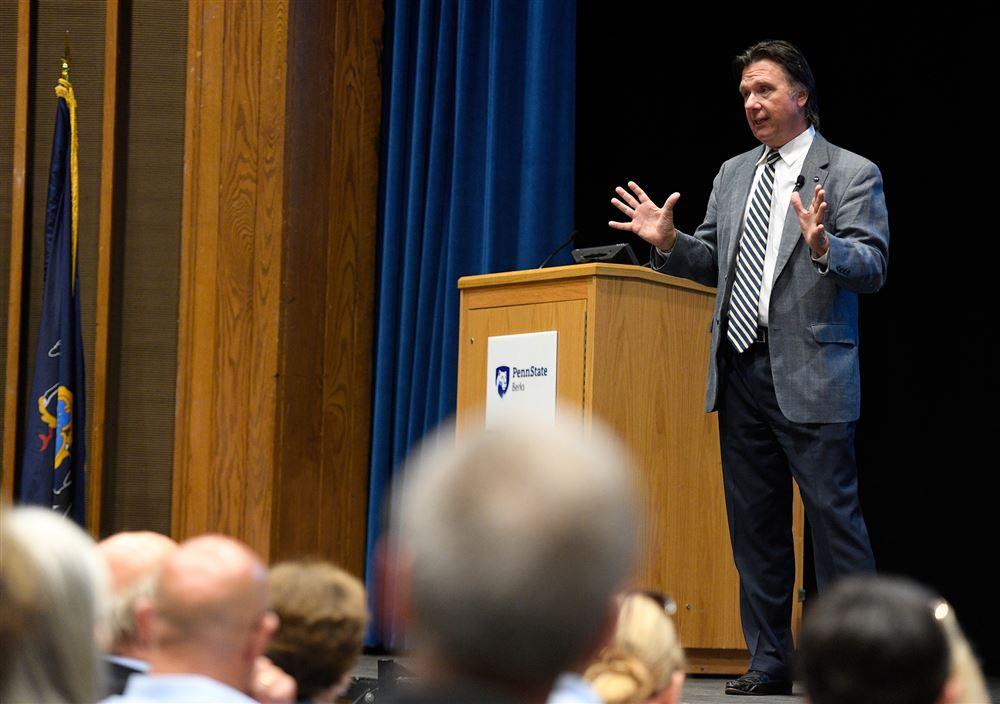Maddie Aiken
Pittsburgh Post-Gazette
How the FBI files on Unabomber Ted Kaczynski ended up at PennWest California
In the 185th paragraph of a 35,000-world manifesto, a literary gaffe caught James R. Fitzgerald’s eye.
The manifesto’s author wrote, “You can’t eat your cake and have it, too.” It’s a slight variation of the idiom that most readers of the Washington Post-published manifesto likely shrugged off.
But Mr. Fitzgerald, an FBI supervisory special agent who played an integral role in solving the infamous Unabomber case, noted the mistake of the criminal, who killed three people and injured 23 during a 17-year-string of mail bombings from 1978 to 1995.
He remembered the blunder as he scoured through the writings of Unabomber suspect Ted Kaczynski. In a 1972 letter to the editor in the Saturday Evening magazine sent six years before the first bombing, Mr. Kaczynski made the same error. That linguistic clue, among others, led to the 1996 arrest of Mr. Kaczynski, who pleaded guilty to the crimes in 1998 and died in a prison cell on Saturday at age 81.

(PennWest California)
Mr. Kaczynski’s idiomatic missteps, along with a lifetime of his writings, can be viewed in a roughly 6,000-page collection accessible through PennWest California. Mr. Fitzgerald, who is currently an assistant professor at PennWest California and podcast host, donated the papers to the Pennsylvania Center for Investigative and Forensic Sciences at PennWest California in 2021 after he finished his memoir series.
Now, the public can read dozens of documents that were key in solving the case that stumped law enforcement for nearly two decades.
“In the Unabomber’s case, the use of his own language basically signed his prison sentence,” Mr. Fitzgerald said. “And as of recently, nailed his coffin shut, it seems.”
Among the papers in the collection are Mr. Kaczynski’s manifesto in which he lamented modern social order, an autobiography and letters he wrote to his mother and brother.FBI and Department of Justice files related to the investigation and prosecution of the case are also included in the collection.
A Harvard graduate, Mr. Kaczynski created bombs from a secluded cabin in Montana. He often targeted academics and businessmen.
The publishing of the Unabomber’s manifesto ultimately put Mr. Kaczynski on the FBI’s radar. His brother approached authorities after recognizing the language in the piece. The Washington Post and New York Times jointly printed the manifesto in the Post after government officials pressured the newspapers to do so.
Though many of Mr. Fitzgerald’s FBI colleagues were initially against printing the piece, Mr. Fitzgerald persuaded them to support publishing. Mr. Fitzgerald remains a strong proponent of releasing manifestos to the public.
“If someone is willing to put their thoughts and ideas as to why they target certain groups of people, why they’re going to kill or shoot up certain institutions, I think the public has a right to know,” Mr. Fitzgerald said. “I’m a big fan of, in most cases, releasing manifestos to the public, either to identify the person who wrote them, as in Unabomber’s case, or to better understand the rationale behind shootings and killings, even if the person has been identified, arrested, or [is] even dead.”

(Jeremy Drey/Reading Eagle)
Mr. Fitzgerald believes it is important for the public to have access to writings like Mr. Kaczynski’s so people understand criminals’ motives, mindsets and behaviors. It is also crucial for researchers, psychologists and criminologists to review writings like these, he said.
The 69-year-old retired FBI agent donated the papers to PennWest California after co-developing the university’s forensic linguistics master’s degree alongside Georgetown University linguistics professor Natalie Schilling. He believed the university’s impressive criminal justice department and “growing” forensic linguistics sub-department would offer a great home for the papers.
“Then Cal-U, now PennWest, was the right forum to donate these papers,” he said.
Upon the donation, the university digitized the papers and created a searchable database, said John Cencich, a criminologist, PennWest California professor and director of the Pennsylvania Center for Investigative and Forensic Sciences.
Cencich said PennWest California is “uniquely positioned” to run the database. He believes it is important to continue studying Mr. Kaczynski’s life and writings.
“[Mr. Kaczynski] may be dead, but the lessons to learn are not,” Cencich said. “There are a lot of legitimate, applied purposes to continue to study this. That knowledge could be used with other offenders and other events.”
